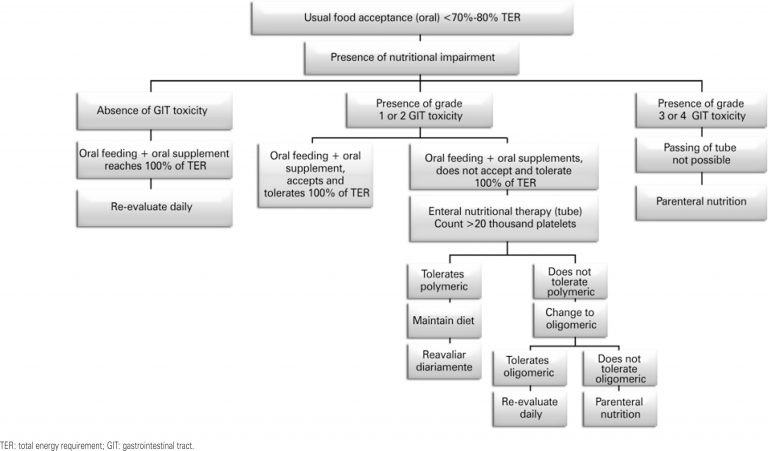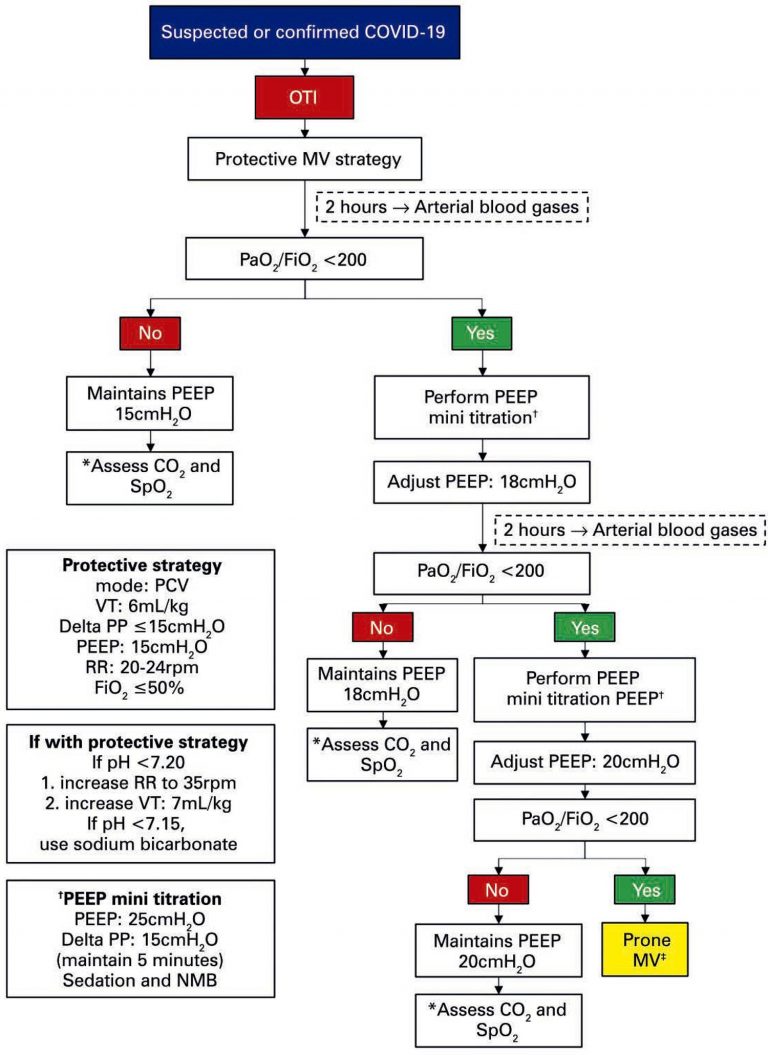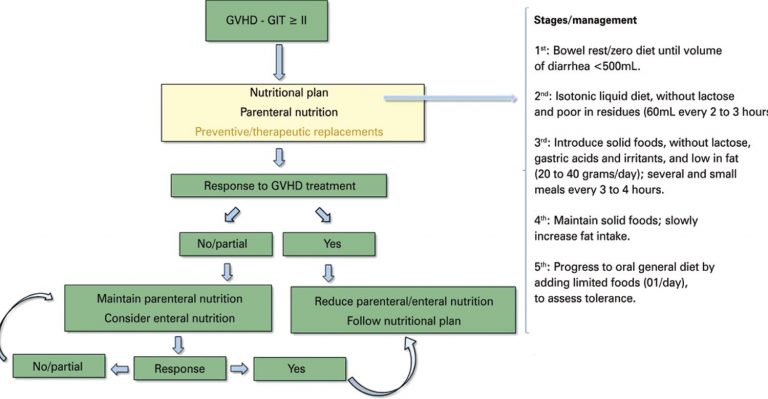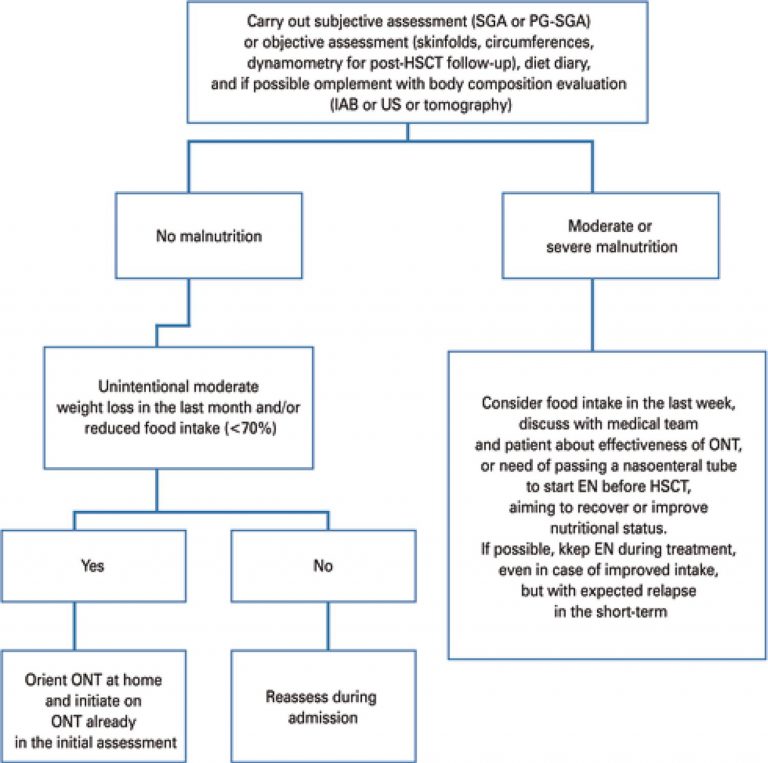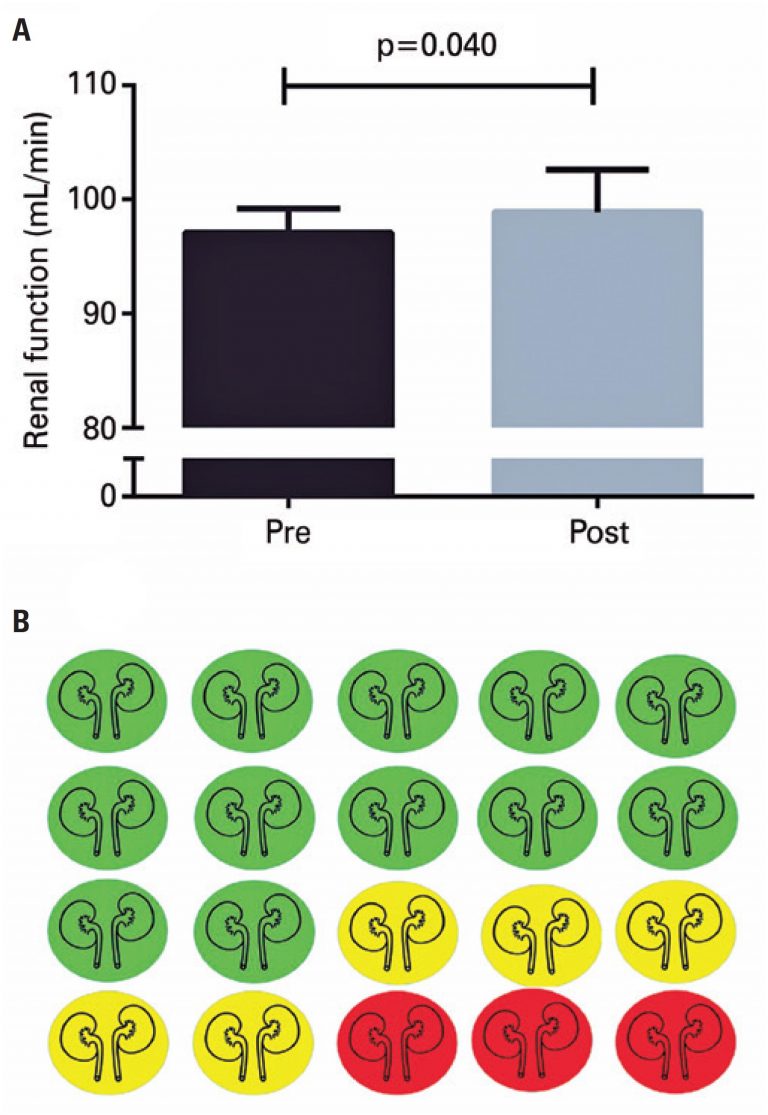07/Mar/2022
COVID-19 pandemic: multilevel dental technical guidelines based on new scientific evidence
DOI: 10.31744/einstein_journal/2022AE6307
ABSTRACT The COVID-19 pandemic imposed restrictive measures on dentistry in different regions of the world, ranging from stoppage of care to only permission for urgent and emergency dental services. Thus, new biosafety guidelines for resuming activities, whether in single dental offices, large clinics or dental education activities, are urgently required. In this sense, herein, guidelines that incorporate common points of the main protocols found in the literature for the resumption of dental activities at their different levels, whether in the […]
Keywords: Betacoronavirus; Containment of biohazards; Coronavirus infections; COVID-19; Dental care; Dentistry; Guideline; Pandemics; Personal protective equipment; SARS-CoV-2; Telescreening, medical
25/Nov/2021
Brazilian Nutritional Consensus in Hematopoietic Stem Cell Transplantation: children and adolescents
DOI: 10.31744/einstein_journal/2021AE5254
ABSTRACT The Brazilian Nutritional Consensus in Hematopoietic Stem Cell Transplantation: Children and Adolescents was developed by dietitians, physicians, and pediatric hematologists from 10 Brazilian reference centers in hematopoietic stem cell transplantation. The aim was to emphasize the importance of nutritional status and body composition during treatment, as well as the main characteristics related to patient´s nutritional assessment. This consensus is intended to improve and standardize nutrition therapy during hematopoietic stem cell transplantation. The consensus was approved by the Brazilian Society […]
Keywords: Adolescent; Child; Hematopoietic stem cell transplantation; Nutrition assessment; Nutrition therapy; Nutritional status; Pediatrics
26/Feb/2021
Impact of the COVID-19 pandemic stay at home order and social isolation on physical activity levels and sedentary behavior in Brazilian adults
einstein (São Paulo). 26/Feb/2021;19:eAE6156.
View Article26/Feb/2021
Impact of the COVID-19 pandemic stay at home order and social isolation on physical activity levels and sedentary behavior in Brazilian adults
DOI: 10.31744/einstein_journal/2021AE6156
ABSTRACT Objective To investigate the impact of the coronavirus 2019 pandemic on physical activity levels and sedentary behavior among Brazilians residents aged ≥18 years. Methods An online survey was distributed through a social media platform between May 5 and 17, 2020. Participants completed a structured questionnaire in Google Forms, which assessed the physical activity level and sedentary behavior of adults in Brazil during the pandemic. Results Age (OR: 0.98; 95%CI: 0.97-0.99), chronic disease (OR: 1.29; 95%CI: 1.03-1.63), physical inactivity before […]
Keywords: Coronavirus; Coronavirus infections; COVID-19; Physical inactivity; Quarantine; Sedentary behavior; Sedentary lifestyle
29/May/2020
Intensive support recommendations for critically-ill patients with suspected or confirmed COVID-19 infection
einstein (São Paulo). 29/May/2020;18:eAE5793.
View Article29/May/2020
Intensive support recommendations for critically-ill patients with suspected or confirmed COVID-19 infection
DOI: 10.31744/einstein_journal/2020AE5793
ABSTRACT In December 2019, a series of patients with severe pneumonia were identified in Wuhan, Hubei province, China, who progressed to severe acute respiratory syndrome and acute respiratory distress syndrome. Subsequently, COVID-19 was attributed to a new betacoronavirus, the severe acute respiratory syndrome coronavirus 2 (SARS-CoV-2). Approximately 20% of patients diagnosed as COVID-19 develop severe forms of the disease, including acute hypoxemic respiratory failure, severe acute respiratory syndrome, acute respiratory distress syndrome and acute renal failure and require intensive care. […]
Keywords: Coronavirus; COVID-19; Intensive care units; Respiratory distress syndrome, adult; Respiratory insufficiency
24/Apr/2020
Fair allocation of scarce medical resources during COVID-19 pandemic: ethical considerations
DOI: 10.31744/einstein_journal/2020AE5775
INTRODUCTION Many are the uncertainties generated by the potential healthcare resource scarcity in the face of a relevant increase in the number of cases of coronavirus disease 2019 (COVID-19), an infectious disease caused by the novel coronavirus (SARS-CoV-2) of the Coronaviridae family. The virus emerged in China, in December 2019, spreading rapidly to other regions of the world, including Brazil. Since March 11, 2020, COVID-19 has been considered a pandemic by the World Health Organization (WHO). Viral pandemics tend to […]
13/Mar/2020
Brazilian Nutritional Consensus in Hematopoietic Stem Cell Transplantation: Graft- versus -host disease
DOI: 10.31744/einstein_journal/2020AE4799
ABSTRACT The Brazilian Consensus on Nutrition in Hematopoietic Stem Cell Transplantation: Graft- versus -host disease was approved by Sociedade Brasileira de Transplante de Medula Óssea , with the participation of 26 Brazilian hematopoietic stem cell transplantation centers. It describes the main nutritional protocols in cases of Graft- versus -host disease, the main complication of hematopoietic stem cell transplantation.
Keywords: Graft versus host disease; Hematopoietic stem cell transplantation; Nutrition
04/Feb/2020
Brazilian Nutritional Consensus in Hematopoietic Stem Cell Transplantation: Adults
DOI: 10.31744/einstein_journal/2020AE4530
ABSTRACT The nutritional status of patients submitted to hematopoietic stem cell transplant is considered an independent risk factor, which may influence on quality of life and tolerance to the proposed treatment. The impairment of nutritional status during hematopoietic stem cell transplant occurs mainly due to the adverse effects resulting from conditioning to which the patient is subjected. Therefore, adequate nutritional evaluation and follow-up during hematopoietic stem cell transplant are essential. To emphasize the importance of nutritional status and body composition […]
Keywords: Hematopoietic stem cell transplantation; Nutritional status; Nutritional therapy
14/Nov/2019
Visual data: a new tool to improve the presentation of clinical trial results
DOI: 10.31744/einstein_journal/2020AE4729
ABSTRACT Randomized controlled trials are known to be the best tool to determine the effects of an intervention; however, most healthcare professionals are not able to adequately understand the results. In this report, concepts, applications, examples, and advantages of using visual data as a complementary tool in the results section of original articles are presented. Visual simplification of data presentation will improve general understanding of clinical research.
Keywords: Biostatistics; Data display; Non-randomized controlled trials as topic; Randomized controlled trials as topic
Methodological description of clinical research data collection through electronic medical records in a center participating in an international multicenter study

16/Sep/2019
Methodological description of clinical research data collection through electronic medical records in a center participating in an international multicenter study
einstein (São Paulo). 16/Sep/2019;17(4):eAE4791.
View Article16/Sep/2019
Methodological description of clinical research data collection through electronic medical records in a center participating in an international multicenter study
DOI: 10.31744/einstein_journal/2019AE4791
ABSTRACT Data collection for clinical research can be difficult, and electronic health record systems can facilitate this process. The aim of this study was to describe and evaluate the secondary use of electronic health records in data collection for an observational clinical study. We used Cerner Millennium®, an electronic health record software, following these steps: (1) data crossing between the study’s case report forms and the electronic health record; (2) development of a manual collection method for data not recorded […]
Keywords: Anesthesia; Critical care; Data accuracy; Data collection; Electronic health records
13/Aug/2019
Consensus on the investigation of thrombophilia in women and clinical management
DOI: 10.31744/einstein_journal/2019AE4510
ABSTRACT Objective To standardize the investigation and clinical management of women with laboratory and/or clinical abnormalities suggestive of thrombophilia, in order to optimize antithrombotic approach and indication of laboratory tests. Methodology A discussion was carried out among 107 physicians (gynecologists/obstetricians, hematologists and vascular surgeons) present at a forum held at the Hospital Israelita Albert Einstein, in São Paulo (SP), Brazil. As a minimum criterion, 80% agreement was established in the voting to each recommendation of conduct in the final document. […]
Keywords: Abortion, habitual; Antiphospholipid syndrome; Contraception; Pregnancy; Pregnancy complications; Thrombophilia; Venous thromboembolism; Venous thrombosis


